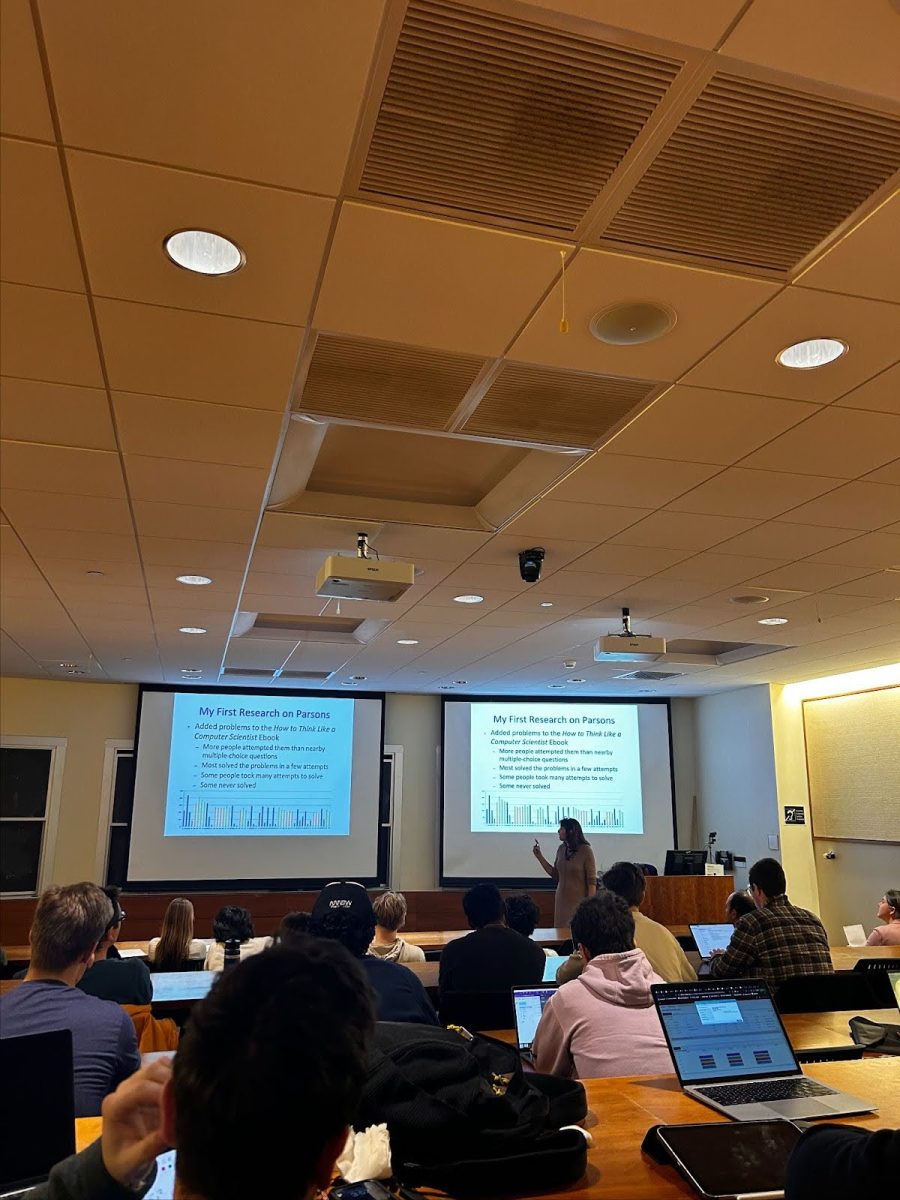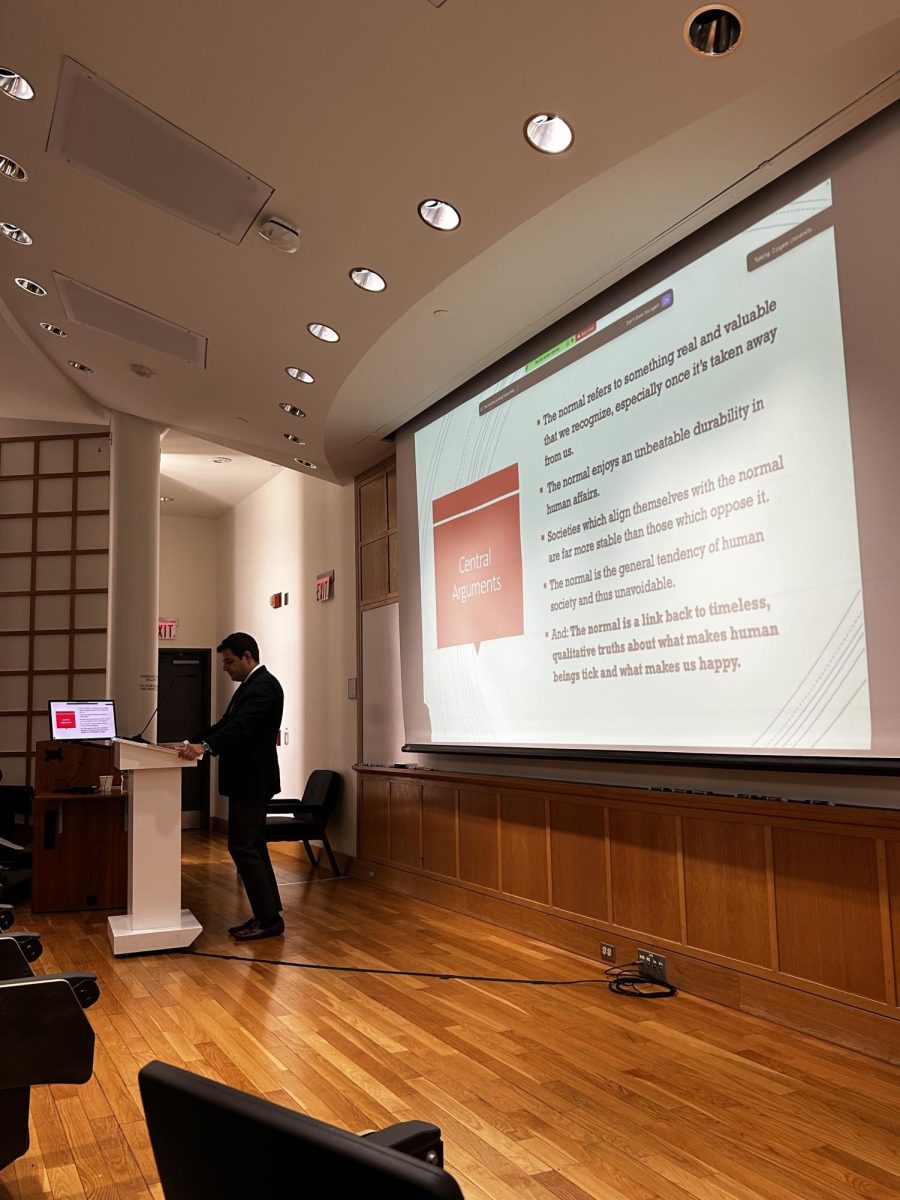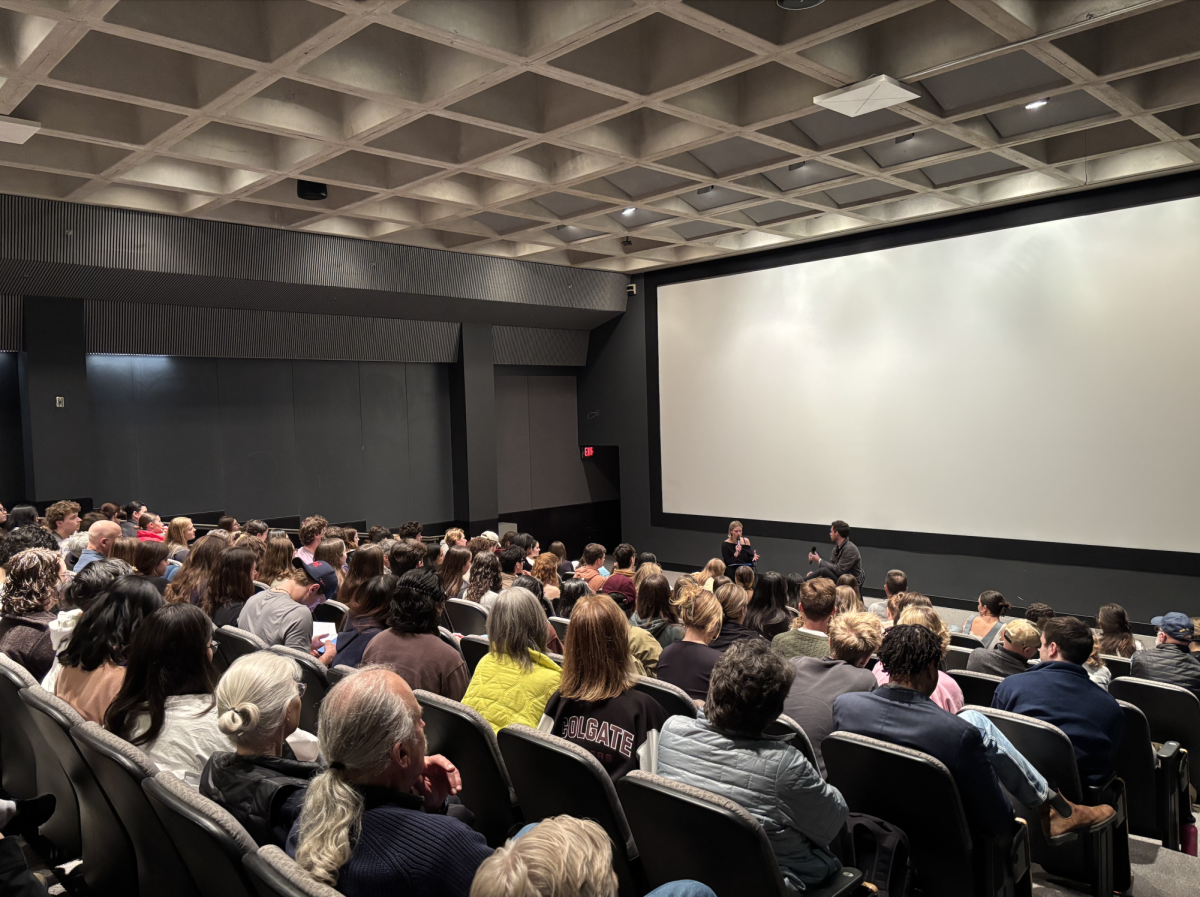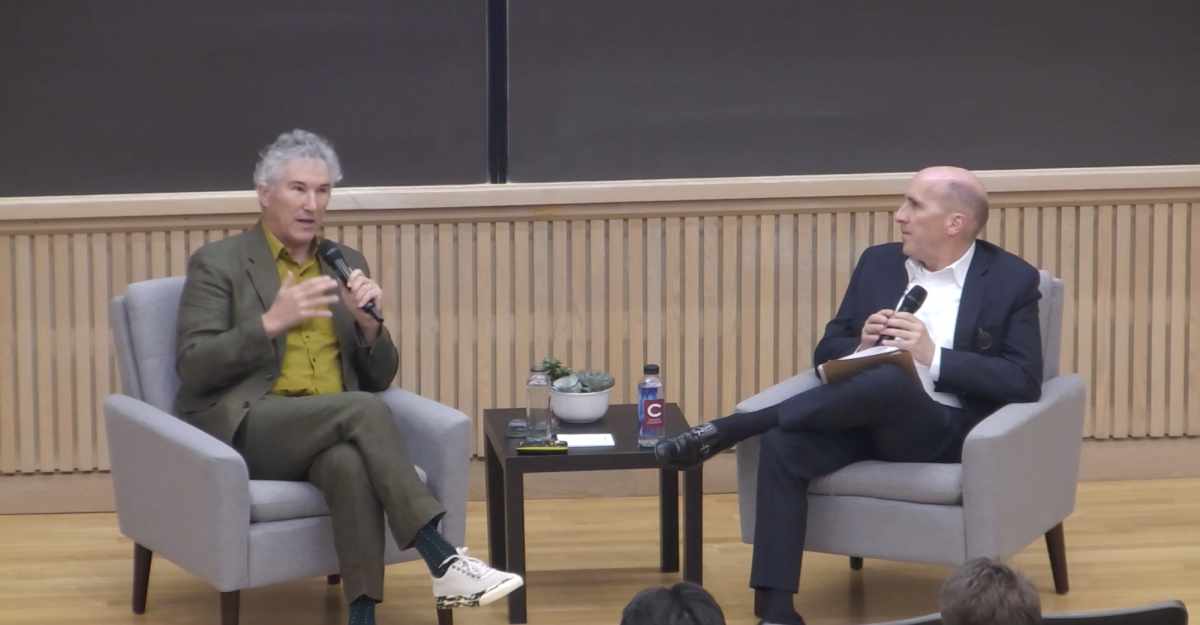Colgate University’s division of natural sciences and mathematics hosted Dr. Barbara Ericson — an associate professor of information at the University of Michigan — for its weekly NASC Colloquium on Friday, Nov. 15.
Ericson’s experience as a professor enabled her to share her observations on the impact of generative AI on introductory programming. She explained how platforms such as ChatGPT can help students solve, explain, debug and translate (from one coding language to another) code. Conventional approaches to programming now have to be modified because students have become overly reliant on generative AI, rendering them unable to compile basic code.
Throughout the colloquium, Ericson spoke extensively about the interactive e-books she has created and tested to help students with the Advanced Placement Computer Science course and computing courses in general. These e-books are built upon ideas from educational psychology and allow students to experiment with code. Ericson stressed the prevalence of active over passive learning and explained how her e-books help students reason without typing code.
Ericson’s infamous Parsons problems are instrumental in her pedagogical approach to programming. In these types of problems, the code solution to a given question is broken down into blocks and put in a random order. The task is to rearrange the randomized blocks to find the correct solution. Some problems also have distractor blocks, which test the student’s ability to identify minute mistakes, such as an indentation error or the use of an incorrect function.
“These problems test if the students have critically understood the problem, as well as their attention to detail,” Ericson said. “It is essentially meant to teach students how to read and reason about the code and subsequently predict the output.”
Ericson also believes in peer instruction, specifically “process oriented guided inquiry learning,” a technique wherein students work in groups to understand and solve programs and address common misconceptions. She emphasized the benefits of in-lecture text chats to facilitate peer instruction, a prominent tool during virtual learning.
Ericson has also initiated projects like Project Rise Up 4 CS and Sisters Rise Up 4 CS, organizations that help Black and female-identifying individuals respectively succeed in AP Computer Science A. These projects have shown monumental progress; the number of Black and female-identifying students enrolling for and passing the exam in these states is growing.
Ericson proposed creating new practice problems that encourage cognitive engagement and original thinking. Some of these methods include using open-ended problems that will not permit the use of generative AI and will instead require the student to think critically and analytically. She elucidated how we should embrace the fact that programming has changed, explaining that the goal should be to make it engaging and applicable.
First-year attendee Jeremy Artiga was intrigued by the large-language model (LLM) tool Ericson introduced.
“I found the idea that the LLM can utilize an individual’s incorrect code to devise a problem and solution personalized to the individual fascinating,” Artiga said. “Given the versatility of such a tool, I think it could become a staple within the field of computer science learning if utilized along with the typical practices of teaching programming.”
Professor of Mathematics Dave Lantz appreciated computer science professor’ innovative approach to teaching and was curious about how these methods will change with the advent of generative AI.
“[Ericson]’s talk showed how hard professors — and teachers in general — work to find new ways to help students learn,” Lantz said. “Computer science, in particular, is in the vanguard of innovative teaching methods. The speaker herself has created interactive eBooks and online tools for teaching computer science. But the advent of generative AI has changed the game. Should we continue to teach coding if the machines can write code? And if we should, how do we do it? It’s a whole new game with lots of questions,” Lantz said.
First-year Tim Viding’s perspective urged others to use AI with caution.
“As someone who has had little exposure to coding, the talk showed how accessible it was and the works of [Ericson] help her students maximize their learning through interactive eBooks and POGIL techniques,” Viding said. “With generative AI being on the rise, she helped me understand its usefulness and how important it is to use it correctly while filtering out errors it can come up with.”











